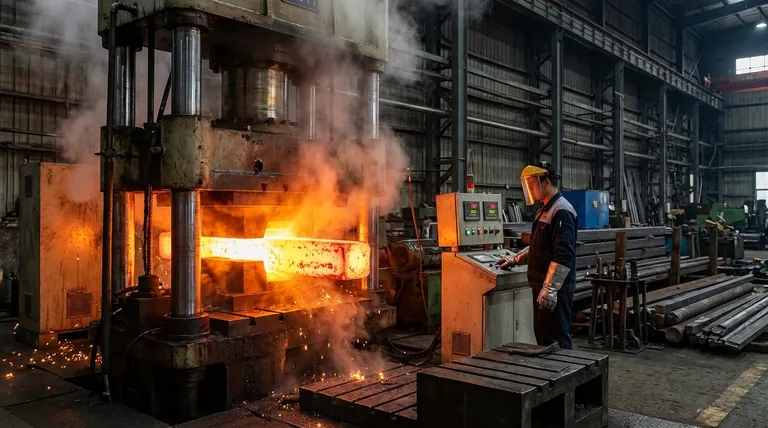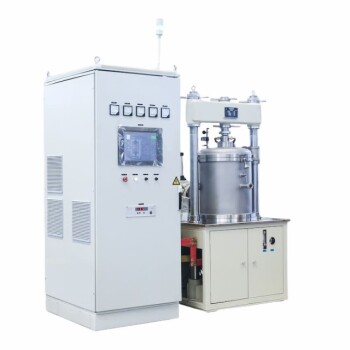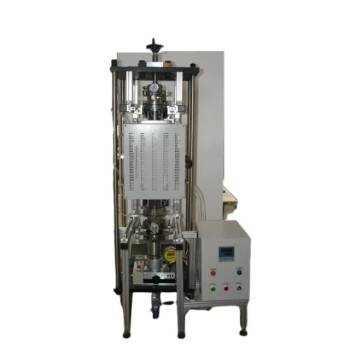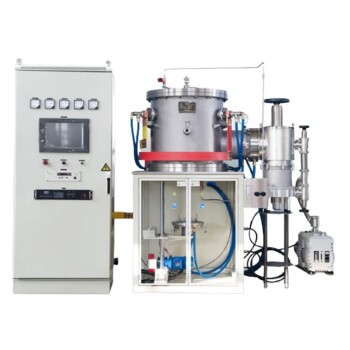At its core, hot forging is suitable for a wide range of metals and alloys that exhibit high ductility when heated above their recrystallization temperature. The most commonly forged materials are steels (carbon, alloy, and stainless), aluminum alloys, titanium alloys, and copper alloys like brass and bronze. The key is a material's ability to be plastically deformed under pressure without cracking.
The question isn't just which materials can be hot forged, but what properties make them suitable. The process hinges on a material's forging temperature "window"—the range where it is malleable enough to shape but not so hot that it degrades or melts.

The Defining Trait: Forgeability at High Temperatures
The suitability of a material for hot forging is determined by a property known as forgeability. This is not a single metric but a combination of characteristics that dictate how a metal behaves under heat and pressure.
What "Forgeability" Really Means
Forgeability describes a material's capacity to undergo plastic deformation without cracking. High forgeability implies high ductility (ability to be stretched) and malleability (ability to be hammered into a shape) at its forging temperature.
This process reduces the force needed to shape the part and simultaneously refines the material's grain structure, which enhances its final mechanical properties like toughness and fatigue resistance.
The Critical Forging Temperature Window
Every forgeable metal has an ideal temperature range for the process.
The lower limit is its recrystallization temperature, the point at which new, strain-free grains form. Forging below this is "cold forging."
The upper limit is determined by the material's solidus temperature (melting point) or the point at which it begins to scale or degrade excessively. A wider window makes the process easier and more forgiving.
A Breakdown of Commonly Forged Metals
While many metals can be forged, a few families of alloys dominate industrial applications due to their favorable properties and processing characteristics.
Steels: The Industrial Workhorse
Carbon, alloy, and stainless steels are the most frequently forged materials in the world.
Their crystalline structure at high temperatures (austenite) is highly ductile, making them exceptionally easy to shape. They offer an unmatched combination of strength, toughness, and cost-effectiveness for everything from automotive crankshafts to industrial tools.
Aluminum Alloys: Lightweight Strength
Aluminum is prized for its high strength-to-weight ratio, making it essential in the aerospace and high-performance automotive industries.
It is forged at significantly lower temperatures than steel (around 350-500°C vs. 950-1250°C for steel). This reduces energy costs and tooling wear, though precise temperature control is critical to avoid defects.
Copper Alloys: Corrosion and Conductivity
Alloys like brass (copper-zinc) and bronze (copper-tin) are forged to produce parts that require excellent corrosion resistance, thermal conductivity, or electrical conductivity.
Common applications include plumbing fittings, valves, bushings, and electrical components.
Titanium & Nickel Superalloys: Extreme Performance
These materials are at the high end of both performance and difficulty. Titanium alloys are used for aerospace components and medical implants due to their strength and biocompatibility.
Nickel-based superalloys, like Inconel, are forged for parts in jet engines and gas turbines because they retain immense strength at extreme temperatures. Both have very narrow forging windows and high resistance to deformation, requiring massive forces and precise process control.
Understanding the Trade-offs and Limitations
Not every metal is a good candidate for hot forging. The factors that make a material difficult or impossible to forge are just as important to understand as those that make it suitable.
Why Some Metals Are Poor Candidates
Materials with high carbon content, like cast iron, are generally not forgeable. The carbon forms graphite structures that make the metal inherently brittle, causing it to crack under the compressive forces of forging rather than deform.
The Challenge of Narrow Forging Windows
As mentioned with titanium and superalloys, a narrow temperature window makes the process far more difficult and expensive. If the material cools too quickly, it can crack; if it gets too hot, its properties can be permanently damaged. This requires sophisticated heating equipment and rapid handling.
Reactivity and Surface Scaling
At forging temperatures, many metals react readily with oxygen in the atmosphere. This creates a hard, brittle layer of oxide scale on the surface.
This scale must be removed (descaled) before forging to ensure a clean surface finish and to prevent it from being pressed into the final part, which would create defects.
Making the Right Choice for Your Application
Selecting a material for a forged component requires balancing performance requirements, manufacturing complexity, and total cost.
- If your primary focus is strength and cost-effectiveness: Carbon and alloy steels are the default choice for the vast majority of industrial applications.
- If your primary focus is a high strength-to-weight ratio: Aluminum and titanium alloys are the leading candidates, essential for aerospace and performance automotive parts.
- If your primary focus is corrosion resistance or conductivity: Copper alloys like brass and bronze are ideal for plumbing, electrical, and marine hardware.
- If your primary focus is extreme temperature performance: Nickel-based superalloys are necessary, but this choice comes with a significantly more complex and costly forging process.
Ultimately, understanding a material's fundamental behavior at high temperatures is the key to unlocking the immense potential of the hot forging process.
Summary Table:
| Material Category | Common Alloys | Key Properties & Applications |
|---|---|---|
| Steels | Carbon, Alloy, Stainless | High strength, toughness, cost-effective; used for automotive parts, tools. |
| Aluminum Alloys | 2000, 6000, 7000 series | Lightweight, high strength-to-weight ratio; ideal for aerospace, automotive. |
| Copper Alloys | Brass, Bronze | Excellent corrosion resistance, conductivity; used in plumbing, electrical components. |
| Titanium & Nickel Superalloys | Ti-6Al-4V, Inconel | Extreme temperature strength, biocompatibility; essential for aerospace, medical implants. |
Need help selecting the right material for your hot forging project? KINTEK specializes in providing high-performance lab equipment and consumables tailored to metallurgical testing and research. Whether you're analyzing forgeability, optimizing temperature windows, or ensuring material integrity, our solutions help you achieve precise, reliable results. Contact us today to discuss how we can support your laboratory needs and enhance your forging processes!
Visual Guide

Related Products
- Vacuum Hot Press Furnace Machine Heated Vacuum Press
- Vacuum Hot Press Furnace Heated Vacuum Press Machine Tube Furnace
- Vacuum Hot Press Furnace Machine for Lamination and Heating
- 600T Vacuum Induction Hot Press Furnace for Heat Treat and Sintering
- Laboratory High Pressure Vacuum Tube Furnace
People Also Ask
- What is the significance of precise temperature control in melt infiltration? Achieve High-Performance Li-Alloy Electrodes
- What are the advantages of using a vacuum hot press for CuCr50? Achieve Superior Density & Purity in Alloy Production
- How does the uniaxial pressing function of a vacuum hot press furnace influence the microstructure of ZrC-SiC ceramics?
- What conditions does a Vacuum Hot Pressing Furnace provide for Copper-MoS2-Mo composites? Achieve Peak Densification
- Why is a vacuum essential for sintering metal-ceramic composites? Achieve Pure, High-Density Results



















